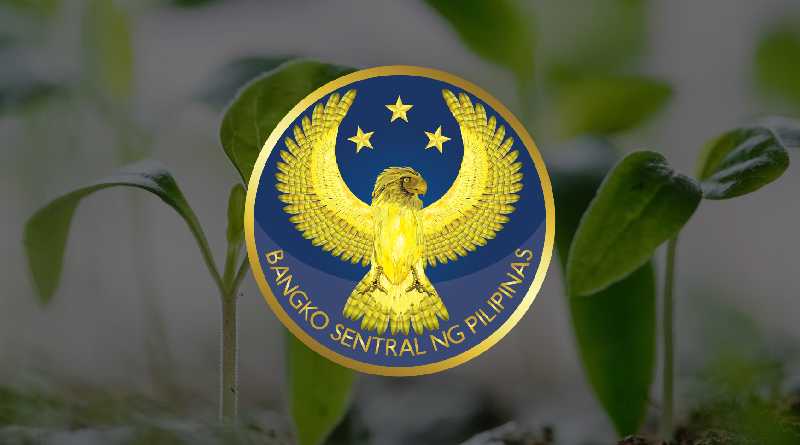Source: https://mb.com.ph/2022/08/29/perks-for-green-banks-out-in-4q-bsp-official/
The Bangko Sentral ng Pilipinas (BSP) will soon release the guidelines outlining the package of incentives to be granted to banks that will shift to green financing and mobilize capital to expand sustainable finance in the country.
“We’re looking at the fourth quarter for the (new circular) release,” BSP Deputy Governor Chuchi G. Fonacier said in a text message to Manila Bulletin.
Fonacier is referring to the third phase of BSP sustainable finance regulations. The first circular under the third phase was approved last Aug. 23 as Circular No. 1149 or the “Guidelines on the Integration of Sustainability Principles in Investment Activities of Banks”.
“The recently released circular did not yet include the incentives. It will be covered in a separate circular,” she said.
Some of the incentives or perks to encourage banks to shift to sustainable financing includes preferential rediscount rates and provision of higher loan values.
The central bank is hoping these perks will increase the share of green financing in banks’ loan portfolios. Since 2017, local banks have issued some $1.3 billion worth of sustainable bonds and P152.9 billion in peso-denominated bonds.
The third phase of sustainable finance regulation involved the wider adoption of sustainability principles in the domestic financial system.
The first phase was released last April 2020 which is the BSP’s Sustainable Finance Framework. The second phase or the Environmental and Social Risk Management Framework was issued October last year.
The first and second phases of regulations set out the expectations on the integration of sustainability principles in banks’ core strategies, governance, and risk management frameworks, especially in the areas of credit and operational risks. These rules also embed the principle of proportionality, which takes into consideration a bank’s size, risk profile, and complexity of operations.
The BSP is collaborating with the World Bank for its sustainable finance policy map to strengthen surveillance and risk measurement models. The World Bank helps the BSP in conducting stress testing exercises to asses the potential impact of climate transition risk to local banks.
The International Monetary Fund (IMF) on Aug. 19 released an initial study on the potential impact of climate change and stress testing of physical risks to determine macro scenarios especially for a country such as the Philippines that face typhoon risks.
The IMF stress testing exercise, first mentioned in June and in another report this month, is experimental in examining the physical risks of global climate change on the country’s macro scenarios.
The IMF said the impact of “extremely rare typhoons” on the economy “could already be systemic and worsen substantially with climate change.” But, the IMF assured that “bank capital declines only modestly unless the event is compounded with other disasters, partly thanks to the strength of Philippines’ banks and economy before the COVID crisis. However, more work is needed before drawing strong conclusions about the relevance of climate risk, as the model focused only on typhoons’ physical capital destructions and their macroeconomic-level transmissions to banks.”
Meantime, the BSP said it will enhance its data collection tools to facilitate the assessment of climate and other environment-related financial impact. It will also supplement existing regulations on stress testing with guidelines that integrate climate stress testing design.
The BSP, with the Department of Finance, co-chairs the Green Force which is responsible for the sustainable finance roadmap.
The Philippines committed to reduce its carbon emissions by 75 percent by 2030 under the UN Framework Convention on Climate Change.
BSP Governor Felipe M. Medalla said that Circular No. 1149 recognizes the potential contribution of banks’ investment activities in the pursuit of a sustainable and resilient growth for the country.
These guidelines covered what BSP expects banks to do in the “prudent” conduct of investment activities and the minimum practices for the management and control of the potential risks. It includes banks’ investments in the trading and banking books. But the rules do not apply to the following: investments that grant control over an enterprise and are accounted for using the equity method; transactions in derivatives involving stand-alone contracts; and receivables arising from repurchase agreements.
Under the BSP’s risk management framework, banks’ policies and procedures, including limits, should adopt a combination of integration, screening and thematic approach.
The recently issued circular is specific on how a bank may adopt other approaches and appropriate global best practices depending on its investment policy and sustainability objectives and goals, the nature of its investments, volume of transactions, and existing risk management system and resources. However, all banks should make sure that the related sustainability risk factors, including anti-money laundering/counter-terrorism financing risk that arise from environmental and social or E&S issues, are sufficiently captured, said the BSP.
The circular also noted the misleading practice called “greenwashing” which is a “deceptive marketing” to persuade the public that an organization’s products, aims, and policies are environmentally friendly. Greenwashing by BSP definition also covers the dissemination of misleading information, whether intentional or not, regarding a company’s environmental strategies, goals, motivations, and actions that can induce false positive perception of a company’s E&S performance.
The BSP said banks should adopt measures to ensure that investments are channeled to companies that comply with sustainability-related standards, laws and regulations as well as companies that do not engage in greenwashing.
